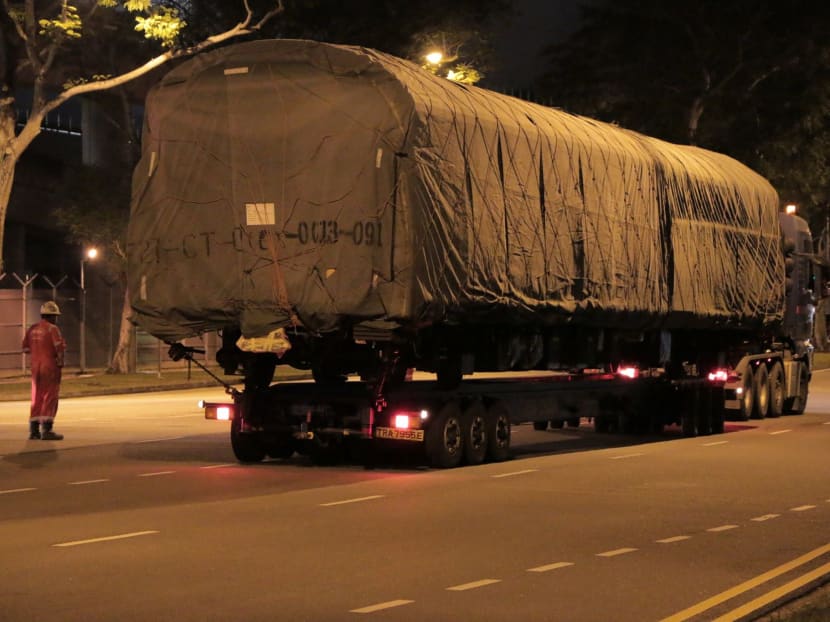Defects on new SMRT trains did not affect safety: Ministry of Transport
SINGAPORE - The cracks found on a batch of new trains delivered to SMRT in 2013 were "superficial cracks" that did not affect the train's systems, performance or passengers' safety, the Ministry of Transport (MOT) said on Tuesday night (July 5).
SINGAPORE - The cracks found on a batch of new trains delivered to SMRT in 2013 were "superficial cracks" that did not affect the train's systems, performance or passengers' safety, the Ministry of Transport (MOT) said on Tuesday night (July 5).
In a post on the Government's Factually website, the ministry disclosed that repairs for the defective trains would be completed by 2019, instead of 2023 as initially announced by SMRT.
The MOT also sought to address questions on why the defective trains had to be covered up and transported late at night. The questions emerged after an investigation report by Hong Kong's FactWire News Agency, accompanied by photos and video footage, was made public. The news agency alleged that the defective trains had been "secretly" shipped back to its mainland China manufacturer for replacement.
MOT said in its online statement that the defective trains were transported at night to minimise inconvenience to road users. "Likewise, new trains that arrive in Singapore are transported on our roads at night," it added. As for the green covers that were used to wrap up the trains, as seen in Factwire's photos and video footage, the ministry said they were used to protect the trains as it was being transported overseas.
The issues with the trains were brought to light after FactWire, a crowd-funded investigative journalism site, reported on Tuesday that the trains had to be shipped back to the Chinese manufacturer’s plant to fix the defects. According to the report, the defects became apparent soon after they were put into service on the North-South and East-West lines (NSEWL). Examples cited in the report include glass panels within train carriages repeatedly shattering due to shoddy workmanship and uninterruptible power supply batteries — made in China — exploding during repairs. These batteries were replaced with those made in Germany.
The MOT statement said defects were found during a check of new trains manufactured by Kawasaki Heavy Industries and CSR Sifang in late 2013. But the ministry did not confirm whether the trains were in operation, nor did it provide a detailed list of the defects found.
It said, however, that were "a few hairline cracks on the car-body", adding that they were "superficial cracks...that did not affect the train’s systems, performance or passengers’ safety."
An external third party assessment engaged by the Land Transport Authority in 2013 also confirmed that the trains were safe to operate, an MOT spokesperson said, adding: "As advised by the third party assessment, there has also been close monitoring of the crack propagation rate.”
These defective C151A-model trains were supplied by Japanese train-maker Kawasaki Heavy Industries and the China-based CSR Qingdao Sifang Locomotive and Rolling Stock Company (CSR Sifang). The two firms, together with Kawasaki’s Singapore subsidiary, had bagged a S$368 million contract in 2009 to supply 22 six-car C151A trains meant for the NSEWL. SMRT subsequently ordered another 13 trains of the same model.
In 2014, the same consortium was also awarded a S$749 million contract to supply 91 new four-car trains — of a different model — for the Thomson-East Coast Line.







